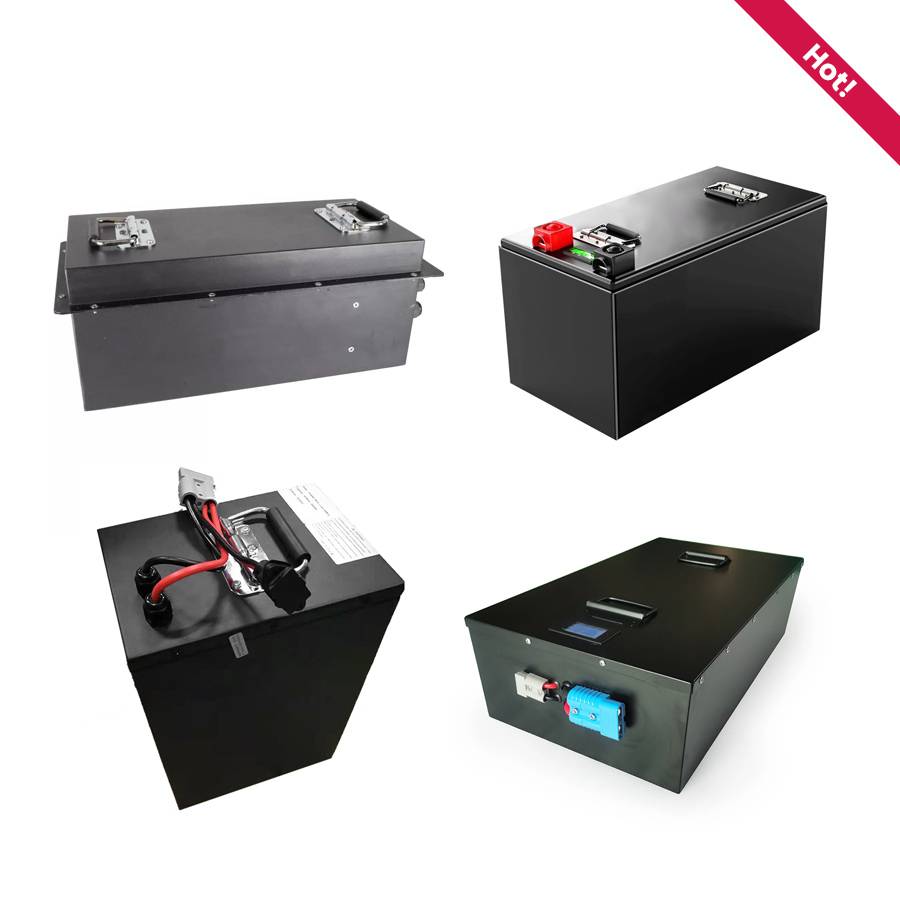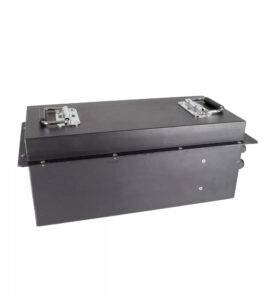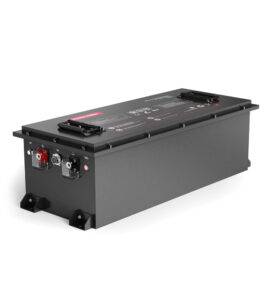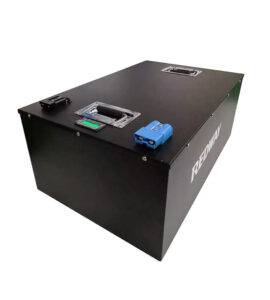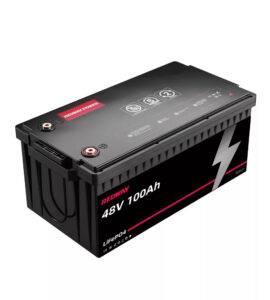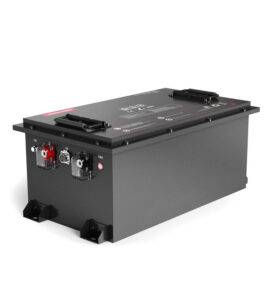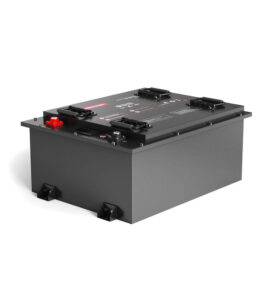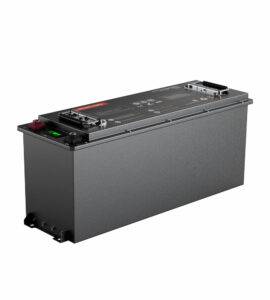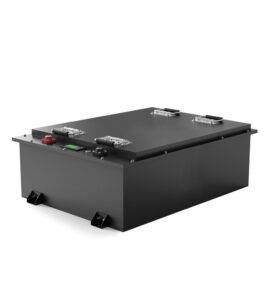72V Lithium ion Battery Factory Wholesale
72V Lithium ion Battery, One-Stop Solution
Redway Power 72V Lithium-ion Batteries, your ultimate one-stop solution for power needs. Engineered for reliability, our rechargeable batteries boast high energy density and a lightweight build. With options ranging from the compact 72V 50Ah to the robust 72V 200Ah, our lineup caters to diverse requirements.
Whether you're a professional or a consumer, our batteries ensure dependable performance for outdoor adventures, emergencies, and professional tasks. Trust Redway Power for unparalleled convenience and reliability in powering your devices. Illuminate your world confidently, backed by Redway Power's advanced lithium battery technology.
Your Trusted Lithium ion Battery Manufacturer
What is the wholesale price of lithium battery?
You can click contact us or phone call us. We will give you multiple options of price.
Is Redway Power a trading company or factory?
Redway Power is a company with its own factory, integrating research, development, production, and sales.
How about the quality of Redway's LiFePo4 Battery product?
Redway Power boasts over 12 years of experience in LiFePO4 battery production and is an authorized supplier for CATL and BYD.
Can you do an OEM/ODM project?
Yes, we have engineers available to assist in designing and developing any related products.
What’s your MOQ?
MOQ varies according to battery voltage and capacity.
What payment terms can we accept?
We accept TT/Paypal/West Union, etc.
What is the Lifespan of a 72V Lithium-ion Battery Compared to Others?
Compare battery lifespans: Lithium-Ion: 4000+ cycles, lightweight, no maintenance. Lead-Acid: Heavier, <1000 cycles, needs maintenance. NiMH: Less common, shorter lifespan. 72V lithium-ion batteries offer durability, energy density, and low maintenance, making them ideal for various applications.
Let's break down the differences in lifespan among different battery types:
Lithium-Ion Batteries:
- These batteries can endure over 4000 charge cycles, meaning they can be recharged thousands of times without significant capacity loss.
- They're lightweight and require no maintenance, making them hassle-free and efficient for various applications.
Lead-Acid Batteries:
- These batteries are heavier and bulkier compared to lithium-ion batteries.
- Their lifespan is typically less than 1000 charge cycles, and they require regular maintenance to ensure optimal performance.
Nickel-Metal Hydride (NiMH) Batteries:
- While offering high energy density, NiMH batteries are less common than lithium-ion variants.
- However, they have a shorter lifespan compared to lithium-ion batteries and may not be as readily available.
In summary, lithium-ion batteries, including the 72V variant, outperform other types in terms of longevity, maintenance, and efficiency, making them the preferred choice for many applications.
How Do I Safely Handle and Charge 72V Lithium-ion Batteries?
When handling and charging 72V lithium-ion batteries, prioritize safety. Follow the manufacturer's instructions, store batteries in a cool, dry place, and supervise charging. Avoid overcharging and charging near flammable items. Report damaged batteries promptly and buy from reputable sources. Proper disposal is essential for battery safety and environmental protection.
When it comes to handling and charging 72V lithium-ion batteries, safety is crucial. Here's what you need to know:
Follow Instructions: Always follow the instructions provided by the manufacturer. These guidelines are designed to keep you safe and ensure proper battery function.
Storage and Charging: Store batteries in a cool, dry place away from heat and sunlight. When charging, supervise the process and avoid overcharging to prevent damage.
Safety Measures: Be aware of safety measures, such as keeping batteries away from flammable materials and reporting any damage immediately. Purchase batteries from reputable sources to ensure quality and safety.
By following these steps, you can safely handle and charge 72V lithium-ion batteries without any risks.
Can I Interchange 72V Lithium-ion Batteries with Other Types?
No. Interchanging 72V lithium-ion batteries with other types may not be safe. Unlike some power tool batteries that are interchangeable, lithium-ion batteries have unique designs specific to their applications. Always verify compatibility before swapping batteries to prevent damage or accidents. Stick to the battery type specified by the manufacturer for optimal performance and safety.
Let's break down why swapping 72V lithium-ion batteries with other types isn't recommended:
Unique Design: Lithium-ion batteries are tailored for specific tools or devices, unlike some power tool batteries that are cross-compatible. This uniqueness extends to the 72V lithium-ion batteries, making them incompatible with other types.
Safety Concerns: Interchanging batteries of different chemistries or voltages can pose safety risks. Lithium-ion batteries have different voltages and chemical compositions compared to lead-acid or nickel-metal hydride batteries, which can lead to damage or accidents if used interchangeably.
Manufacturer's Recommendations: Always follow the manufacturer's guidance regarding battery usage. Using the correct battery type specified for your device ensures optimal performance and safety, preventing potential damage to both the battery and the device it powers.
It's crucial to prioritize safety and adhere to manufacturer recommendations when handling and using batteries to avoid accidents or damage.
What are the Advantages of 72V Lithium-ion Batteries Over Traditional Lead-acid Batteries?
72V lithium-ion batteries have many advantages over traditional lead-acid ones. They store more energy in a smaller, lighter package, lasting 10-15 years compared to lead-acid's 3-12 years. Lithium-ion batteries are more efficient (95% vs. 80-85%), maintenance-free, and eco-friendlier. With superior energy density, lifespan, efficiency, and environmental impact, they're preferred for various applications.
Let's break down the advantages of 72V lithium-ion batteries compared to traditional lead-acid ones in simple terms:
Energy Savings:
- Lithium-ion batteries are like compact powerhouses. They can store a lot more energy in a smaller, lighter package compared to lead-acid batteries.
- This means you get more power without needing a huge, heavy battery.
Longer Lifespan:
- Imagine if your battery lasted three to four times longer. That's what you get with lithium-ion batteries.
- They can keep going strong for 10 to 15 years, while lead-acid batteries start to fade after just 3 to 12 years.
Efficiency Boost:
- Ever wonder where all the energy goes when you charge a battery? Lithium-ion batteries make better use of it, with 95% efficiency compared to lead-acid's 80-85%.
- This means less wasted energy, so your battery can power your gadgets or vehicles more effectively.
In short, 72V lithium-ion batteries are like upgraded versions of traditional batteries. They're lighter, last longer, and use energy more efficiently, making them a smart choice for many applications.
How Should I Store 72V Lithium-ion Batteries to Maintain Performance?
Ensure 72V lithium-ion batteries maintain performance by storing them in a cool, dry place, away from direct heat or sunlight. Aim for an ideal temperature of around 50°F (10°C) and 50% humidity. Use insulating materials for protection, and store batteries at 40-50% State of Charge (SoC). Avoid fully charging or discharging them during storage.
When it comes to storing 72V lithium-ion batteries, there are a few key things to keep in mind to maintain their performance and safety. Here's a simple breakdown:
Temperature and Humidity:
- Keep It Cool: Store batteries in a cool, dry place to prevent overheating and degradation. Ideal temperatures are around 50°F (10°C).
- Mind the Moisture: Aim for about 50% humidity to avoid condensation, which can harm the batteries.
Avoid Direct Sunlight and Heat:
- Shade and Shield: Ensure batteries are away from direct sunlight and heat sources, as high temperatures can damage them.
State of Charge (SoC):
- Keep Them Balanced: Store batteries at a 40-50% State of Charge (SoC) to maintain optimal health. This means neither fully charged nor fully discharged.
Following these simple storage guidelines can go a long way in preserving the performance and lifespan of your batteries.
Are There Maintenance Steps for Extending the Lifespan of 72V Lithium-ion Batteries?
Proper maintenance is crucial for extending the lifespan of 72V lithium-ion batteries. Keep them away from extreme temperatures, store in a cool, dry place, and maintain around 80% charge. Charge to 50% capacity every six months, use regularly, inspect for damage, clean terminals, and occasionally fully charge and discharge for optimal performance.
Ensuring your 72V lithium-ion batteries last longer requires regular upkeep. Let's break down the essential maintenance steps:
Temperature Care:
- Keep batteries away from extreme temperatures, as heat can quicken their deterioration.
- Avoid using or charging devices that become hot, as this indicates potential battery issues.
Storage Conditions:
- Store batteries in cool, dry places with temperatures around 50°F (10°C).
- Minimize exposure to low temperatures, especially during charging.
State of Charge (SoC):
- Aim for an 80% charge level to extend battery life.
- Avoid fully charging or discharging the battery, as this can lead to wear and tear.
Following these steps will help maintain your battery's performance and ensure it lasts longer.
What is the Typical Charging Time for a 72V Lithium-ion Battery?
The charging time for a 72V lithium-ion battery varies based on factors like capacity, charging current, and state of charge. Higher capacity and charging currents mean longer charging times. Starting from a lower state of charge also speeds up charging. Lithium-ion batteries follow a CC/CV charging profile, taking about 2-3 hours for a full charge.
Battery Capacity Matters:
- The size of the battery, measured in ampere-hours (Ah), affects charging time. A larger battery capacity requires more time to fully charge.
Charging Current Influence:
- Charging current, measured in amperes (A), determines how fast energy flows into the battery. Higher currents mean faster charging but should align with manufacturer recommendations to avoid damage.
State of Charge (SoC):
- Starting from a lower SoC speeds up charging. Charging from 0% SoC takes longer than from 50%.
Understanding these factors can help estimate charging times for optimal battery usage.


